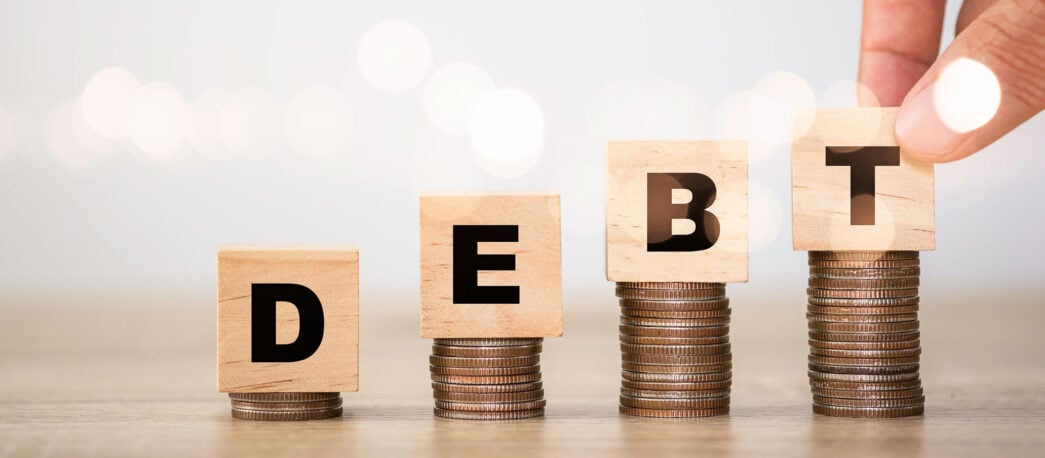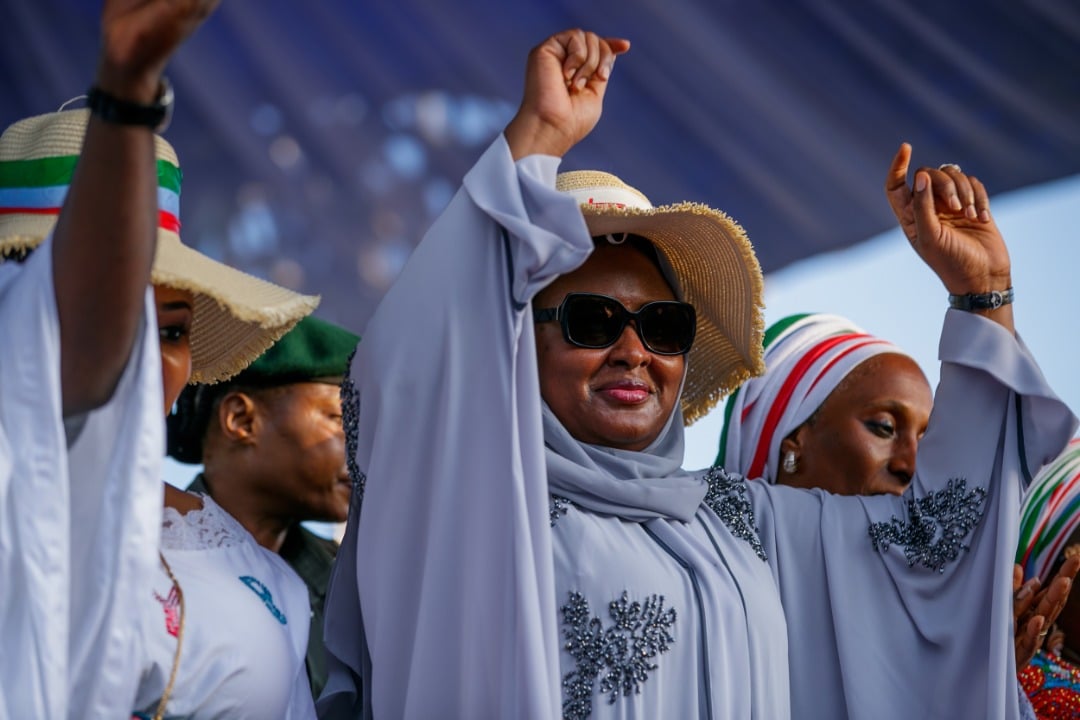It transcends the need for formal education or structured learning and can well be surmised to be a natural law. Even those that are unlettered know it: you cannot keep racking up debts, more so when your revenue base is not growing. The country’s rising national debts are freaking many Nigerians out, so much so that it is causing a lot of people extreme emotional distress – quite rightly. So much has been said about the potential effect of these debts on the economy, the ability of the country to repay them and even the possibility of future generations of Nigerians being mortgaged due to the country’s ever-growing debt stocks.
The fear and trepidation set off in many concerned Nigerians due to the debt surge are legit and valid and must be taken very seriously by this government, especially as it appears there is a debt spiral in the Tinubu administration – an uncommon penchant for ramping up debts upon debts which has the tendency of quickly escalating, leading to serious economic and financial consequences.
The ‘running up debt attitude’ of this government has increasingly come under severe scrutiny, particularly following the new request tabled before the senate committee on local and foreign debt, what has been characterised as the largest single loan proposal in the history of this country; an external loan request of $21.5 billion – roughly half of the nation’s foreign reserves, which raises so many red flags for many experts, especially those fiscal hawks who place untold emphasis on keeping the nation’s budget under control.
After weeks of denial and the issuance of rebuttals after rebuttals, the government eventually admitted to the processing of that massive loan request. This quickly had many Nigerians talking and sparked a wave of concerns from many quarters. For instance, The Socio-Economic Rights and Accountability Project (SERAP) wrote on X (formerly Twitter) on May 28 2025, calling on the national assembly to refuse to approve the loan request. Even the religious groups were not left out, with the Bishop of the Catholic Diocese of Yola, Most Rev. Dr. Stephen Dami Mamza, issuing a passionate appeal urging President Tinubu to halt his move for this fresh loan in The Guardian Newspaper of June 2 2025.
Advertisement
Was the initial denial by the government a subtle admittance that the nation is becoming too leveraged (too much debt burden with the likely potential of becoming unsustainable) and is doing everything to freeze the expected backlash from the public? Whatever the reason, that act had the government ratings tank, diminishing the trust this government is frantically working to build with Nigerians since inauguration and was completely out of tune with this administration’s pledge to continually push for governmental transparency, a development which led many folks to double down on the government in search of answers.
Nonetheless, I must emphasise that, for me, the nation’s debt portfolio put at a little over 50 percent of the economy (Nigeria’s total public debt stock as at March 31, 2025 is put at 149.39 trillion naira according to the Debt Management Office) would actually not have been something to worry about if the receivables from those debts have been utilised wholly to finance capital investment and human development transactions which would have had remarkable direct impacts on Nigerians.
At least, we have a host of countries – the majority of those superpowers, whose public debts as a percentage of their economies are well over 100 percent, and these nations are not in any way in danger of economic meltdowns. The crucial reason: those debts have been deployed to create infrastructure to improve the wellbeing of their citizens and to catalyse economic development at historic record levels. Unfortunately, this cannot be said of Nigeria as it appears that with more debts, some of which conditions have been criticised as burdensome to the country, means more money to be diverted to private use by those whose stock in trade is to deprive struggling and suffering Nigerians of their shared heritage.
Advertisement
In all of these, the cheering news is that the National Bureau for Statistics (NBS) has said it is in the final stages of authenticating the data collected for the rebasing exercise, and the rebased GDP figures would be released by the end of July 2025. While this would not immediately impact the pockets of vulnerable Nigerians ravaged by poverty at an all-time high, it offers a glimmer of hope for the nation – nascent optimism, that the new figures which are predicted to reflect the current picture and size of our economy, and for which several experts are projecting a value likely to be more than double our current GDP, would make our country more attractive to global investors and increase the confidence of the entire international financial community in Nigeria’s economy.
Talking about what to expect with the rebased GDP figures, Proshare, a financial information platform in Nigeria focused on research and analysis of a surfeit of economic indicators, projects that Nigeria’s rebased GDP figure is likely to be about $590 billion (906.5 trillion naira @ #1536.5/$). This perhaps provides a valuable insight into what to expect from NBS when their figures are finally released to the public. The beauty of a rebased GDP is that it would dramatically enhance the nation’s creditworthiness by diminishing the country’s debt-to-GDP ratio from the current level of slightly over 50 percent to around 17 percent. Nevertheless, a drop in this ratio does not constitute a corresponding drop in the country’s debt portfolio.
The World Bank equally projected an average growth rate of 3.60 percent for the nation over the next five years. While this can well be said to be copiously low compared to growth rates of 14.60 percent in 2002, 8.35 percent in 2009 and 11.26 percent in 2010, etc, it offers an interesting perspective into what to expect and the economic territory the country would likely find herself by 2030 if the rebased GDP forecast of Proshare holds true.
By 2030, Nigeria’s economy would be valued at around $700 billion. In my opinion, the combination of this futuristic GDP figures and the Nigerian Tax Reform Acts recently signed into law by Tinubu, which for all intents and purposes, is pro-growth and expected to take the worse off the table in the short-long term as far as paucity of tax revenues is concerned, will put jet fuel into the economy at a record high level. These new tax laws, which constitute a new set of priorities for this administration when implemented from January 2026, would undoubtedly grow our revenues at a rapid pace and give a huge bump to a steep rise in the government receipts.
Advertisement
In about two years, the country stepped up its tax-to-GDP ratio by a few notches, according to Taiwo Oyedele, Chairman of the Presidential Committee on Tax Policy and Fiscal Reforms, who, during a recent interview with Channels TV, said: “The tax-to-GDP ratio was under 10 percent just two years ago. At the end of 2024, we have 13.50 percent.” Essentially, this means that at the end of fiscal year 2024, going by the country’s estimated GDP figures of $253 billion by the IMF, the country’s total tax revenues in 2024 amounted to $34.2 billion (52.5 trillion naira).
My guess: with the effective implementation and administration of the new tax laws, the entire tax frame work would be so framed up in our fiscal space in the coming years, that it would set the tone to completely revolutionize our revenue climate by substantially increasing our tax-to-GDP ratio to match South Africa at 25 percent by 2030 and eventually start to compete with OECD countries.
In essence, with an estimated GDP of $700 billion in 2030 based upon the rebased GDP projection by Proshare and the average growth rate over five years by the World Bank, tax revenues, for example, at 25 percent of the economy would amount to $175 billion (269 trillion naira). With these kinds of tax revenues, not only would Nigeria balance her budget (revenue equalling expenditure) for the first time that I can remember in my lifetime, but present a generous opportunity to record a surplus budget (government’s revenues exceeding its expenditure).
As they say, “Fool me once, shame on you. Fool me twice, shame on me”. This proverbial metaphor ostensibly does not hold water for Nigerians as they have been fooled countless times by administration after administration, whom they trusted but have failed woefully to make their lives better, only specialising in fantastic grandiloquence and seemingly empty promises. Again, Nigerians are in the saddle of another administration – the Tinubu administration. Will these new tax laws energise a toxic combo: stupendously increased revenues in the days and months ahead, fuelling and leading to more systemic corruption?
Advertisement
Ande, a financial and political economy analyst, writes from Lagos and can be contacted via [email protected]
Advertisement
Views expressed by contributors are strictly personal and not of TheCable.











